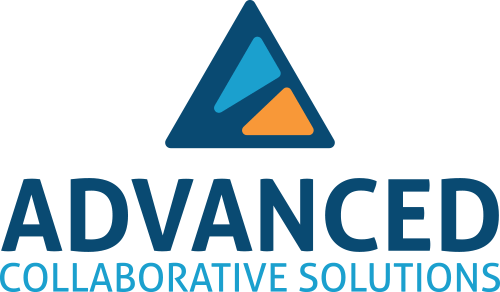Unleashing the Power of Authentic Leadership to Transform K-12 Education

By: Steve Ventura
Being an effective K-12 leader is not merely about occupying a position of authority, but rather about embodying authentic leadership that inspires and empowers others to reach their full potential. Authentic leadership goes beyond a title; it is a mindset, a set of values, and a way of engaging with others that fosters a positive and inclusive learning environment. Read on to delve into the data and research that unequivocally demonstrate the impact of authentic leadership on student achievement and educator effectiveness, to uncover the key characteristics that define authentic leaders, and to gain practical guidance on how to cultivate those characteristics.
The Proven Power of Authentic Leadership
Studies show that schools led by authentic leaders experience higher levels of student achievement, increased teacher satisfaction, and greater engagement from all stakeholders. Additionally, authentic leadership is correlated with greater teacher retention and a shared commitment to professional growth, which is immeasurably important as districts across the country grapple with historic staffing challenges and teacher turnover.
With a number of leadership styles available to leaders, it’s important to define what makes authentic leadership unique and impactful. The most commonly agreed upon indicators of authentic leadership are an emphasis on relational trust, self-awareness, genuine empathy, open communication, strong integrity, and a focus on fulfilling an organization’s mission, purpose, and goals. Amidst the ongoing pandemic and its aftermath, pervasive social inequalities, and technological advancements, authentic leaders are needed to navigate through uncertainty and inspire resilience. These leaders have the ability to create a sense of purpose and vision, foster trust and collaboration, and adapt to ever-changing circumstances while keeping the well-being and growth of students and educators at the forefront. Let’s dig into ways you can hone your authentic leadership to better serve your stakeholders.
Critical Characteristics of Authentic Leaders and How to Become One
Authentic leadership is characterized by a unique set of qualities and behaviors that inspire trust, promote growth, and foster positive relationships within the school community. Let's explore five essential characteristics of authentic leaders and discuss actionable steps you can take to cultivate these traits:
- Self-awareness: Authentic leaders possess a deep understanding of their strengths, weaknesses, values, and emotions. They actively reflect on their actions and impact, seeking continuous personal and professional growth. To cultivate self-awareness, leaders can engage in practices such as journaling, mindfulness exercises, and continually seeking feedback from colleagues and stakeholders. Regular self-reflection allows leaders to align their actions with their values and make conscious decisions that positively influence the school community. Try self-evaluating your strengths and weaknesses, then communicate those out to others so they recognize your growing self-awareness and can hold you accountable to improving.
- Integrity and transparency: Authentic leaders demonstrate unwavering integrity, consistently acting in alignment with ethical principles. They establish an environment of trust and openness by promoting transparency in their decision-making processes and communication. Leaders can cultivate integrity by modeling ethical behavior, making principled decisions, and fostering a culture of honesty and accountability. Openly sharing an inspiring vision and involving stakeholders in decision-making builds trust and promotes a sense of ownership among all members of the school community.
- Empathy and emotional intelligence: Authentic leaders recognize and empathize with the experiences, emotions, and perspectives of others. In fact, according to research, empathy is the most important leadership skill. They actively listen, validate feelings, and demonstrate genuine care and understanding. Cultivating empathy and emotional intelligence involves actively practicing active listening, observing non-verbal cues, and seeking diverse perspectives. Leaders can also engage in empathy-building exercises, such as putting themselves in others' shoes and engaging in constructive conversations to better understand the needs and aspirations of their students, educators, and families. In contrast to sympathy, empathy refers to the capacity or ability to imagine oneself in the situation of another, experiencing their emotions, ideas, or opinions to build connection.
- Collaboration and team building: Authentic leaders recognize the power of collaboration and understand that collective efforts lead to greater success. They actively foster a culture of collaboration, encouraging diverse voices, and promoting inclusive decision-making processes. Leaders can cultivate collaboration by creating opportunities for teamwork, facilitating meaningful dialogue, and valuing contributions from all members of the school community. By building strong teams, authentic leaders leverage the collective knowledge and skills of their staff, leading to innovative practices and improved outcomes for students. That’s why our Achievement Teams model emphasizes the power of teachers’ collective efficacy, a proven strategy for improving student outcomes.
- Growth mindset and continuous learning: Authentic leaders embrace a growth mindset, seeing challenges as opportunities for learning and improvement. Harvard Business School professor Nancy Koehn shares, “Authentic leaders begin with the will and commitment within to work on themselves. They’re not trying to be perfect or to somehow spring from the rib of Zeus into an iconic individual; but rather, they say, ‘Day by day and week by week, I’m going to work on myself.’ This commitment – made with oneself – is the most important starting characteristic.” They prioritize their own continuous learning, in turn inspiring a culture of lifelong learning within the school community. Leaders can cultivate a growth mindset by seeking professional development opportunities, engaging in reflective practices, and encouraging experimentation and innovation. Assess every interaction with stakeholders to ensure you are living in line with your values. When needed, apologize and show humility. Vulnerability and the ability to own mistakes builds trust and strengthens culture.
By cultivating these characteristics, leaders can become authentic agents of change in the K-12 setting. Embracing self-awareness, integrity, empathy, collaboration, and a growth mindset allows leaders to build strong relationships, inspire their teams, and create a positive and inclusive learning environment for students and educators alike. Remember, authentic leadership is a journey of continuous growth and improvement, and every step taken toward authenticity brings us closer to realizing the full potential of our schools.
Looking for a Leadership Atlas?
Leadership can feel lonely and confusing, and so many leaders are looking for guidance. Authentic leadership is not a one-size-fits-all approach – it is a multifaceted concept that encompasses shared values and actions that have a profound impact on student and educator success. Authentic leaders have the power to transform educational environments, create positive school cultures, and inspire individuals while honoring their own unique strengths and tendencies.
To further support your growth as an authentic leader, I invite you to keep an eye out for my upcoming leadership book. In this leader’s atlas, I will delve deeper into the principles and practices of authentic leadership, providing practical strategies, real-world examples, and insights from experienced educational leaders. My goal is that this guide becomes a valuable resource for instructional, school, and district leaders looking to enhance their leadership abilities and make a lasting impact in the K-12 education system. Subscribe to our mailing list (in the footer below) so you can be the first to know when it’s released!
In the meantime, you owe it to yourself and your stakeholders to take proactive steps in your leadership professional development. Seek opportunities for growth, connect with like-minded individuals, and invest in continuous learning. The team at Advanced Collaborative Solutions is here to support you on your journey. Reach out and let’s work together on your leadership goals.

